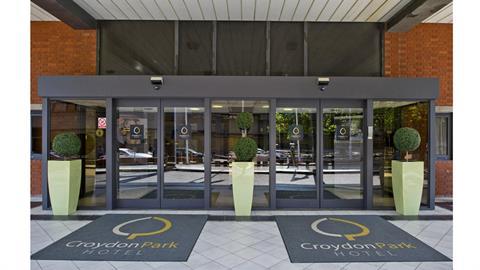Dev Anand examines the hotel market, and asks whether after 10 years of too many buyers and not enough sellers, the market will now see the reverse.

Every week in 2018 and 2019 around 50 major hotels transactions took place in the capital and gateway cities of Europe, made up of hotels bought or sold, hotels opening, and new hotels announced to open. At that time thankfully very few hotels closed due to receivership or administration, but clearly 2020 has been a very different year.
In the first quarter/half of this year we have seen virtually all of the 300,000 (over 10 rooms) global hotels close except those that stayed open for key workers.
We have now seen a fair few re-open. But with fears of a second spike in Covid-19, a lack of flights to get to said hotels, and a general wariness of the travelling public, it is difficult to get anywhere close to 40% occupancy.
So, what does that do to the hotel buy and sell market? After 10 years in Europe, major cities of too many buyers and not enough sellers, are we seeing the reverse?
Interestingly…not as yet, at least for the time being. But ask me again at the end of the year!
The considered opinion is if a hotel company was 'sensibly' geared, say up to 60%, the major clearing banks have taken a position (or at least told by their respective governments) to take the long view. There is no point in foreclosing on hotels – who is there to buy them?
Sadly, we have seen some receiverships and default on borrowing repayments, leading to 'the vultures' swooping in, but in the main, these have been hotel owners that might have been in the same predicament anyway.
We do have a handful of deals going through since March 2020 - perhaps the most spectacular being the closing by the Qatari Sheikha Moza bint Nasser to buy the Ritz in London for £750 mln (€817 mln), or just over £5 mln a room, for a property hardly delivering an EBITDA that was acquired for just £75 mln some 25 years previously.
More telling, for me, is the acquisition of five Greek (Crete) resort hotels by the Hines/Henderson Park partnership for a relatively sane figure, i.e. the sort of 'normal' deal that we have been used to seeing in 2019 and before.
So far in the past three months, we have been able to report nearer 10-15 such deals a week, so clearly the number is well down. There are certainly funds out there looking for the distressed, bargain opportunity, but guess what? Distressed hoteliers are hanging in there, albeit with their fingernails.
Most views are that we shall re-open very slowly this year, and with the grace of whoever, enter 2021 cautiously and start a return to some semblance of normality by the end of that year, and maybe, just maybe 2022 could see a return to break-even or small EBITDA yield. But remember that hoteliers, like many other businesses, are totally reliant on the factors beyond their control.
Airlines getting back to flying with semi-decent loads, the corporate world getting back to big events – we are hearing of event organisers getting to be masters of the art in virtual events, delivering food parcels to 350 would-be attendees, and zoom-them cooking their own meals for the Gala Dinner.
Sporting and other live events are returning to provide the overnight accommodation market.
So to conclude, keep your eyes open between September and early next year, expect more rational prices than the over-heated hotel market we have had in Europe in recent years, but the best hotels will not be sold at give-away prices.
Dev Anand is the owner of The Hotel Property Team, a boutique hotel-broker, based in London covering hotels in Europe and further afield.










